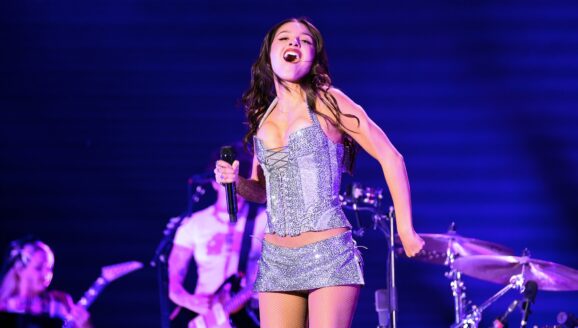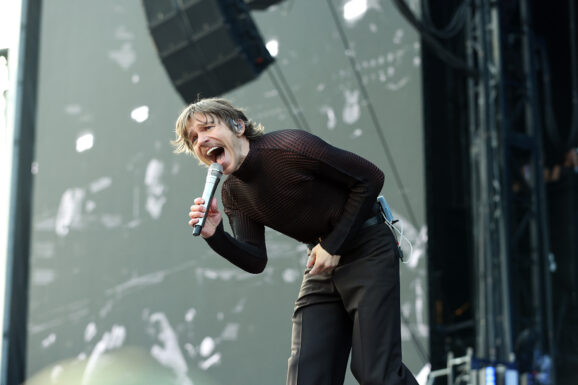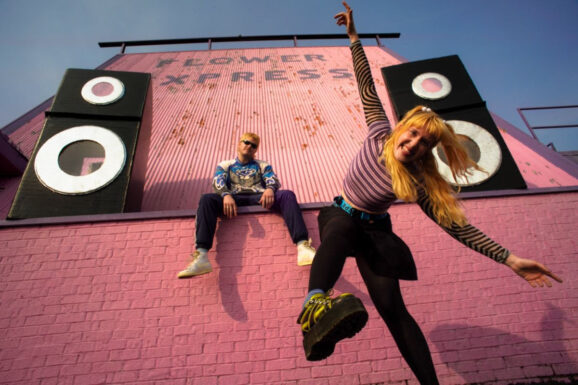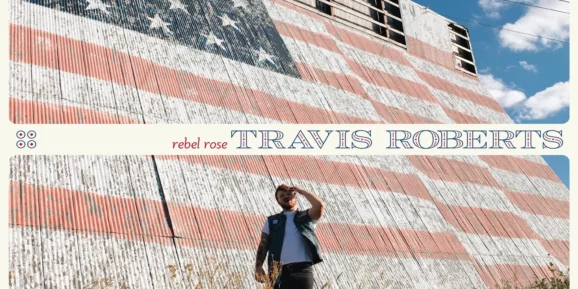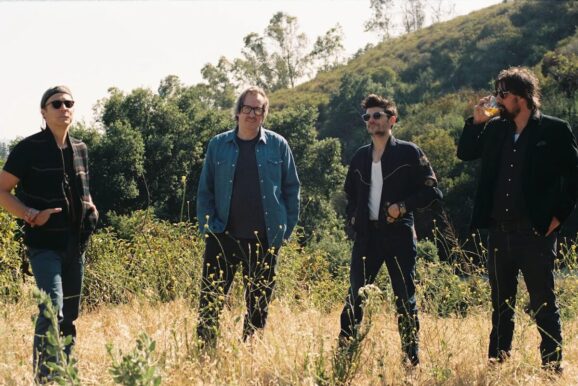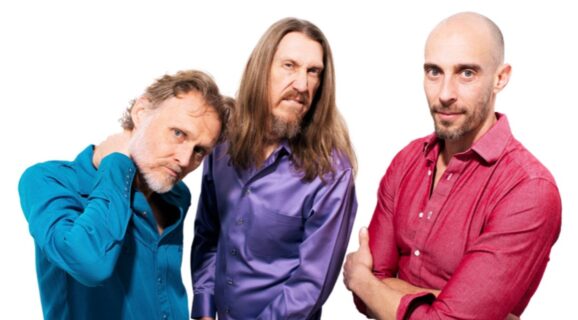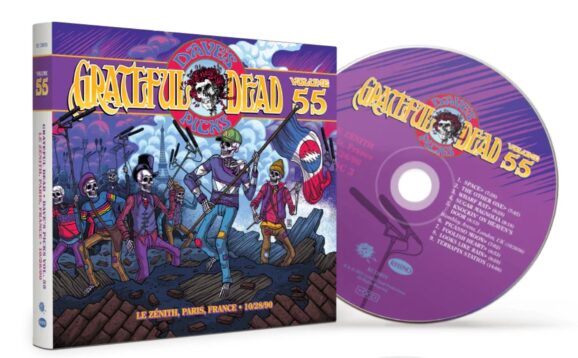 There is something timeless about the oldies. No matter how many bands come along who can infuse modern technology and new sounds into the traditional rock structure, nothing can replace the catchiness of the Temptations, the allure of the Rolling Stones, and the power of James Brown. The Austin band Black Joe Lewis and the Honeybears have taken rhythm and blues, soul, and rock and roll to a new level with their contemporary take on these classic genres. Their contagious stage energy, momentous enthusiasm, and infectiously catchy songs have captivated audiences all over America, including a recent show at the Coachella music festival. Glide Magazine spoke to Zach Ernst, founder, leader, and guitarist for Black Joe Lewis after the release of their second album, Scandalous.
There is something timeless about the oldies. No matter how many bands come along who can infuse modern technology and new sounds into the traditional rock structure, nothing can replace the catchiness of the Temptations, the allure of the Rolling Stones, and the power of James Brown. The Austin band Black Joe Lewis and the Honeybears have taken rhythm and blues, soul, and rock and roll to a new level with their contemporary take on these classic genres. Their contagious stage energy, momentous enthusiasm, and infectiously catchy songs have captivated audiences all over America, including a recent show at the Coachella music festival. Glide Magazine spoke to Zach Ernst, founder, leader, and guitarist for Black Joe Lewis after the release of their second album, Scandalous.
What inspired you to form the band?
Joe had made a name for himself around town a little bit here in Austin. Before I met him or anything, I was familiar with his stuff. I had never seen him live or anything like that, but had his first record and we kind of got to know each other and got to be friends. It was a serendipitous thing. He didn’t have a band or his guys were leaving and I didn’t have any intention of playing with him or anything. We hit it off and started learning new songs together and writing stuff. It was four and a half years ago now but we’ve just been doing the same thing ever since we met.
Can you describe how you felt when you first heard Joe Lewis sing?
My first reaction was that he was the first young, blues artist that, I think he was doing a more straight, blues, boogie, Chicago thing. He was the first cool young, blues artist. He reminded me of Hound Dog Taylor and Howlin’ Wolf and James Brown- all the guys he grew up listening to. He has such a unique voice. He’s gotten better as a singer over the years but he still has that raw shout. I don’t know too many other folks who nowadays or any time sing the way Joe does. Its always a thrill to get to back somebody up who’s that unique.
How did you modernize the classic blues-rock sound for a contemporary audience?
We try not to think about that too much. It seems like if we’re trying to learn a song in a certain way, by the time we teach it to the band and get it all together, it ends up sounding like us anyway. We couldn’t play it any differently. We started out learning different songs to play and then started writing together. Everything was definitely inspired by and influenced by that all stuff, but by the virtue of us playing it, a bunch of young guys and some of the guys in the band never really hearing it, it just sort of comes up that way. We don’t think about it too much. We realized pretty quickly when we were opening for indie rock bands or playing at festivals with a bunch of acts that aren’t anything like us, that young people really hadn’t been exposed to that type of thing. By no means do we try to stack ourselves up against those old guys but hopefully folks will see us or hear us and start digging back and hearing the real stuff.
Do you orchestrate the arrangements or do you let the individual band members figure out their own parts?
On the first record, it was a little more all coming from Phil and me. The bass player and the drummer have always come up with their own parts. This time around, the horn section had more of an involvement. We came up with the idea in the same ways, but by the time it reached the band, everybody put their own stamp on it that was natural. I think its a better record for it. I think its more original and creative by having all of the members put in their two cents. We’re lucky to have a crew of musicians who come up with something a little different and add it to the big picture.
How do you balance your high level of musicianship with the raw, garage-esque sound of your recordings?
Joe- we all kind of follow his lead. He is a very self-taught kind of guy. He talks about how we can’t play it any cleaner or any more straight-ahead than we do. With that kind of raw energy that he brings, that’s led to all of to un-learn some stuff or think about what’s going to fit with the rest of the band, as opposed to trying to overplay. We put a lot of emphasis on playing together and keeping it simple. All of our favorite acts are not only the Chicago blues guys and the hill country blues guys but also the garage rock bands and punk rock bands of the 70s. Its become our trademark or a little twist on what we’re up to, which is trying to keep it as simple and straight forward as possible and it seems to have worked out so far.
How would you place yourself amongst other blues rock bands playing today like The Roots, Black Keys, or Amy Winehouse?
If a fan of groups like that can be turned on to our band or come to our show based on our association with that, or if someone says, “If you like this kind of thing, you’ll like Joe’s band”, thats a good thing. But we kind of came up down here in Texas and I think maybe we draw on some of the same influences that loom large as far as trying to play rhythm and blues or rock and roll music. I don’t think that other than that that we feel a part of any scene. We’ve been trying to carve out our own thing here in Texas and then once we started traveling around, playing at clubs and bars, something we can call our own. We’re getting better at that and as we move into the second record and even looking forward beyond that, we’ll be able to prove ourselves as being unique or different from the other things that are going on today.
 What is the crowd response to your music? Do you think there is a timeless quality to rhythm and blues and rock and roll?
What is the crowd response to your music? Do you think there is a timeless quality to rhythm and blues and rock and roll?
We play for all kinds of crowds and get booked playing with indie rock bands, played college tours, a lot of beer joints all over, festivals geared towards an older audience. We find that the crowds are very different no matter where we go, which I think is a really good thing, to have that sort of broad appeal. We like getting the young, crazy crowds or the drunken bar gigs tend to be our favorite. I feel like since the music is maybe good to dance to or is a high energy thing, we’re able to get through to folks or give them a different show than they’re expecting based on other bands on the bill or other acts that they think we’d be like.
How do you make sure your music sounds distinct from your inspirations, while also maintaining authenticity to the soul/blues genre?
I think thats true. As we get better as songwriters and have more experience playing on stage, especially the second record compared to the first, getting more original or more unique to us and trying to get our own brand of music up there. We spend all this time listening to things and all of the real masters of American music, that can’t help getting into your DNA. We’ll always owe a debt to those guys who we started listening to because they never leave our mind when we’re trying to come up with something new. There’s always something there that is a result of being the sum of your influences.
For more info see: http://www.blackjoelewis.com/scandalous/

